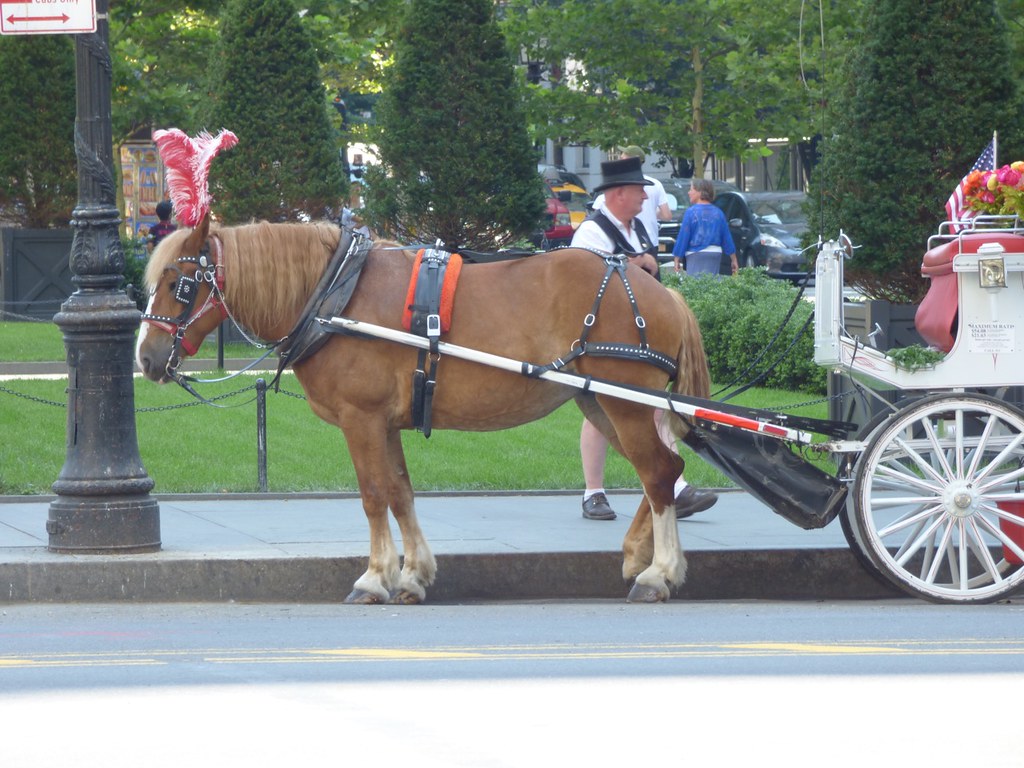Horses in the U.S. are not raised for food. They are bred for recreation, companionship, pets, work or sport—but not for meat. Horse slaughter is illegal in the U.S., and the last three slaughterhouses in the country were closed in 2007. However, horses are still being slaughtered for food, they are just being exported to other countries first. Some Republican legislators and meat industry and animal agriculture lobbyists are even trying to re-open closed horse slaughter plants, despite the horrific cruelty to horses, the risks to human health associated with contaminated and toxic horse meat, and public sentiment firmly against it.
Horses will not be safe until a permanent ban is in place that outlaws the slaughter of horses and bans their export abroad for consumption. The proposed SAFE (Safeguard American Food Exports) Act, or H.R. 961, will end the international export of horses for slaughter. The SAFE Act was re-introduced by Reps. Vern Buchanan (R-FL), Earl Blumenauer (D-OR), Jan Schakowsky (D-IL), and Michelle Lujan Grisham (D-NM) in January 2019. If passed, this bill would impose fines and prison time for anyone who sells, transports, imports or exports horses to any horse processing facility in any country. Read more about the SAFE Act here.
The slaughter of America’s horses is driven by the demand for horse meat in other countries. Horse meat is consumed in Western Europe in France, Italy, Belgium, Scotland, Switzerland and Germany. In Asia, horse meat is eaten in China, Japan and Indonesia, and in other foreign countries including Kazakhstan, Mexico and some Latin American countries. The biggest buyer of horse meat in the world is China, then Kazakhstan. Mexico, Argentina and Kazakhstan are the largest producers of horse meat for consumption.

Over 80 percent of Americans, and 90 percent of American women, are completely opposed to horse slaughter. Approximately 3 out of 4 Americans support protecting wild horses on our public lands. Research shows that the majority of Americans don’t want their tax dollars spent on inspecting meat that is exported to foreign markets, and they also don’t want to eat horse meat.
Between 2012 and 2016, approximately 135,000 American horses were transported out of the U.S. to both Canada and Mexico to be slaughtered for consumption in Europe and Asia. In 2017, just under 80,000 horses were shipped over the border.
The practice of slaughtering horses is highly controversial in many parts of the world. The key ethical, moral and social issue is that horses are considered our friends and companion animals, and have helped and supported humans in critical and life-saving ways for centuries.
Additionally, in the U.S., many horses that enter horse slaughterhouses are former race horses that have been injected with multiple drugs, including steroids, tranquilizers, pain relievers, antibiotics, dewormers, and banned and prohibited drugs, which cause the meat to be dangerously contaminated. The U.S. Food and Drug Administration (FDA) currently bans the presence of 379 common equine drugs in animals slaughtered for human consumption.
Why and how horses end up in slaughterhouses
Slaughtered horses come from every industry: race horses, show horses, carriage horses, and draft horses, as well as wild mustangs and backyard pets. The slaughter pipeline is the disposing place for unwanted horses.
Horse owners and breeders who don’t care about the well being of their horses and see them only as a commodity will sell their horses to horse auctions and “kill buyers” who buy horses for slaughter. Selling horses to kill buyers and auctions is an easy way to unload a horse they no longer want while making a profit. Businesses and industries that use and exploit horses for money often sell horses to kill buyers when they are no longer useful. Selling a horse to kill buyers is the last profit they can squeeze out of their horses.

How you can help horses
- Never sell your horse to a kill buyer or horse auction. If you are facing this, consider surrendering your horse to a rescue, sanctuary, or other organization. If your horse is old or sick and no longer has quality of life, euthanasia can be a humane option. Here is some help with this option if needed.
- Call, email, write letters, or visit your legislators. Urge them to cosponsor and support the SAFE Act (H.R. 961) to end horse slaughter. Find your state legislators here.
- Write your legislators on their social media pages. Post on your legislators’ Facebook and Twitter pages, urging them to cosponsor the SAFE Act and support it. You can say, “Please cosponsor the SAFE Act to protect horses from slaughter!” Or Tweet: “@joesmith Please cosponsor the #Yes2SAFE #EndHorseSlaughter”. Use the hashtags #Yes2SAFE and #EndHorseSlaughter in your message to connect with other advocates!
- Share on social media. Share information about horse slaughter, including this page, with your friends on social media.
- Write an op-ed or letter to the editor. Write to the editor of your local newspaper, radio station or TV station about the cruelty of horse slaughter and legislation protecting horses from horse slaughter.
- Attend a town hall meeting. Here are some tips for attending a town hall meeting in your community to express your views on horse slaughter. You can find the schedule for upcoming meetings by visiting the websites of your federal legislators or calling their offices. The U.S. Capitol switchboard’s number is 202-224-3121.
- Volunteer with and/or donate to a horse rescue or sanctuary. Help your local horse rescue group or sanctuary and offer to volunteer with activities such as grooming, cleaning, feeding or fundraising. You can also donate money, which is much needed to help care for the horses.
- Adopt a horse! Horses need help, you can save a horse from horse slaughter through adoption at horse auctions. Check out Homes for Horses Coalition.
- Join existing efforts opposing horse slaughter. Organizations such as the ASPCA, HSUS, PETA and horse sanctuaries all oppose and are helping to end horse slaughter. Contact these organizations to find out what they are doing, and support their efforts.
This article was compiled from information originally published on the Humane Decisions website.
Featured image: a wild horse. Wild horses are rounded up by the U.S. government, exported, and slaughtered for consumption in other countries. Image credit Americo Dias, CC BY-SA 2.0.





